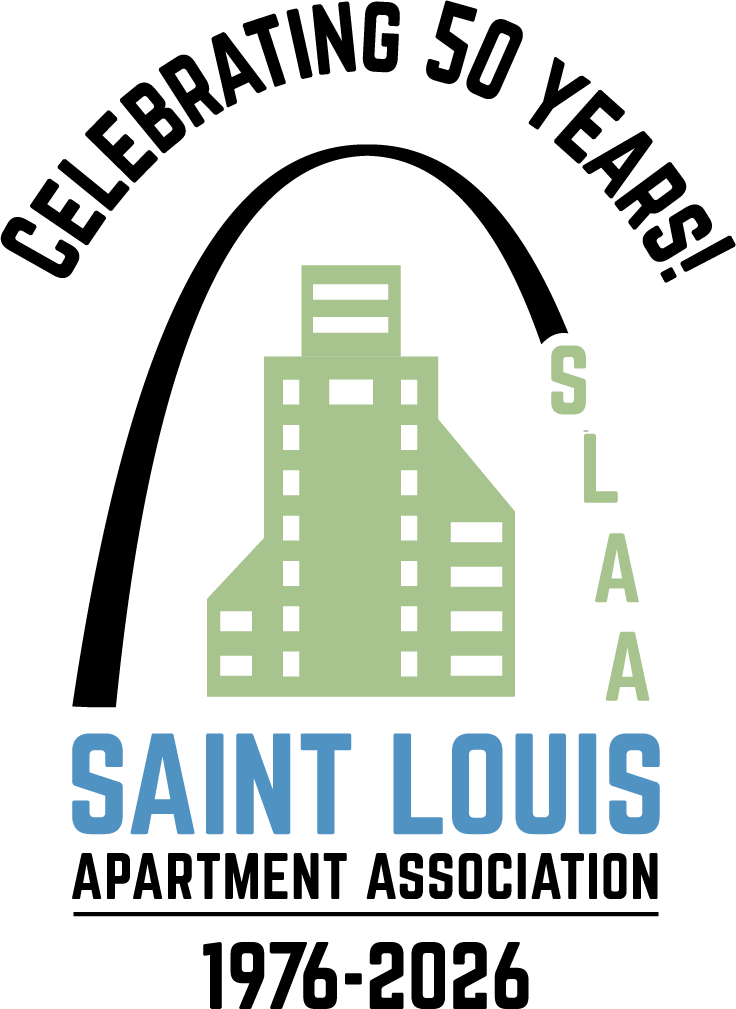State and Federal Governmental Affairs Update
State and Local Update
Some good news....
SLAA was successful in the passage of their bill regarding Emotional Support Animals! Despite everything that could have easily derailed our efforts and momentum with the state legislature, we were successful in having our bill passed. It passed as a stand-alone bill in SB 644 and as an amendment to SB 656 relating to veterans. Not only is this a win for our members on the immediate issue of Emotional Support Animals, but it’s a boost to SLAA in that we continue to grow and foster a positive image with our states legislators. This is crucial for an association such as ours, that continues to grow and continues to take on the important issues that our industry faces.
On a state and local we have two major issues that we are working through: how to safely open property amenities and when will properties be able to resume evictions.
Landlord/Tenant Court Dockets
State courts are opening on “phase base” schedule as well.
St. Louis County and St. Louis City are currently handling a majority of cases remotely and both have moved to Phase 1. Phase 1 does not significantly change from those permitted in Phase 0. St. Charles County is currently operating at Phase 2 and has resumed many in-person hearings.
Missouri has no statewide eviction moratorium and many cases filed prior to March 13, 2020 are now being heard. It is important to note that the Missouri Supreme Court is urging lower courts to refrain from entering default judgments and that if such judgments are entered, they will likely be set aside. This is to again encourage properties to work towards a resolution with their tenant outside of the legal process.
Many properties have created a “legal day” at their respective office which invites delinquent residents to meet with counsel on site to discuss payment plans for the past-due balance, as well as the anticipated difficulty of the coming month(s).
To our properties that may be restricted by HUD, a review of the HUD guidance indicates that we are not allowed to EVICT until at least July 24th. Specifically exempted from HUD’s guidelines are cases of violence, drugs, and immediate threats to property or life.
We continue to encourage Property Managers to work with tenants that may have lost their job as a result of forced business closures.
Pools and Gyms
Many area pool have been allowed to reopen under strict guidelines. SLAA has worked closely with St. Louis County Council as well as the Department of Health of Human Services to narrow down exactly what is required from poop operators to remain in compliance. Our Governmental Affairs department has benefited greatly from prior efforts to build to a positive relationship with local governments. In a time of uncertainty, we have been successful in reaching key members of government to gather information that has been helpful to our properties.
Many properties have required tenants to execute waivers that not only serve to relieve the property of various liabilities due to COVID but also reinforce the importance of each tenant being responsible for adhering to current COVID guidelines.
At this time, many properties are required to have appointed designees on site, to oversee the adherence of these guidelines. Pool inspectors will be touring properties looking for compliance and it is suggested that each property have written procedure that helps to exemplify such compliance.
Federal Update
This Country has been thorough a lot in the last three months and all of it has an impact on the multi-family housing industry. On a Federal level, we have seen various forms of relief rolled out to help keep the economy afloat during otherwise unprecedented times. We have continued to monitor and advise on many of these issues through our affiliation with the National Apartment Association.
In addition to another COVID-19 relief package and potential legislation to address police reforms, Congress has a number of must-pass bills that must be addressed by the end of the year. The following items are issues we continue track:
- Appropriations Bills: Congress must pass the 12-fiscal year (FY) 2021 appropriations bills or adopt a continuing resolution by September 30.
- National Defense Authorization Act (NDAA): Negotiations are underway in both the House and Senate in an effort to meet the September 30 deadline.
- National Flood Insurance Program (NFIP) expires September 30.
- E-Verify and EB-5 expire September 30.
- Fast Act (Surface Transportation)
- Water Resources Development Act
- Tax Extenders (e.g., energy efficiency tax provisions expire at the end of 2020)
Recent Key Congressional Hearings of Note:
- On June 9, the Senate Banking Committee held a hearing titled “Oversight of Housing Regulators.” NMHC and NAA prepared questions on critical issues important to the industry for members.
- On June 10, the House Financial Services Committee held a hearing titled “The Rent Is Still Due: America's Renters, COVID-19 and an Unprecedented Eviction Crisis.” NMHC and NAA submitted written testimony.
- On June 2, The Senate Banking Committee held a hearing entitled, “Implementation of Title IV of the CARES Act.” Section IV includes many key issues critical to the industry including the eviction moratorium and forbearance. NMHC and NAA joined other real estate partners in submitting a letter outlining several implementation challenges which can be found here.
Next COVID-19 Relief Package:
- On May 17, the House passed the HEROES Act, a package crafted by the Democrats outlining the provisions they believe should be included in the next relief package. Action now switches to the Senate and the Trump Administration.
- Several of the CARES Act provisions expire this summer. Applications for the Paycheck Protection Program end on June 30 and expanded unemployment benefits end on July 31.
- The Administration is weighing getting behind a second round of stimulus payments for Americans as part of a relief that Congress is likely to consider next month.
- Senate Majority Leader and other Republican leaders have indicated that they want to wait and get a better idea on how the current direct assistance, enhanced benefits and other CARES Act provisions are impacting the economy before moving forward with the next relief package. Any action on this likely won’t take place prior to the July 4 congressional recess.
COVID-19 "Phase 4" Priorities
Through NAA, we continue to advocate on the following legislative and regulatory issues:
- Emergency Rental Assistance – Create a temporary rental assistance program for those impacted by the COVID-19 emergency and who are struggling to pay their rent.
- Limited Eviction Moratorium – Defer to state and local eviction moratoria or predicate any extension of the federal eviction moratorium protections on it being short in duration, specifically benefit only those who are negatively impacted by COVID-19 and clarify the notice to vacate language to ensure property owners can effectively manage their properties during the crisis. Further, any extension should be contingent on the establishment of a federal emergency rental assistance program. There are several rental housing providers are considering or have filed lawsuits to stop extensions or expansions of state or local eviction moratoria.
- Expanded Mortgage Forbearance – Provide mortgage forbearance protection to all multifamily properties and align the protections with local, state, or federal eviction moratoria.
- Credit Facilities – Create credit and liquidity facilities for mortgage servicers and rental property owners under the Federal Reserve.
- Access for Multifamily in Federal Lending Programs – Ensure eligibility for all apartment owners and developers in the Small Business Administration’s Paycheck Protection and the Federal Reserve’s Mainstreet Lending Programs.
- Enact Liability Protections – Provide targeted liability protections from COVID-19-related litigation for apartment firms that work to follow applicable public health guidelines in reopening.
- Provide Pandemic Risk Insurance/Recovery Funding – Establish a federal economic business recovery fund and enact the Pandemic Risk Insurance Act to help apartment owners recover from this pandemic and prepare for the next.
On our radar:
SLAA will continue to provide updates via our website as the era of COVID continues to bring swift change to the way we conduct business.

